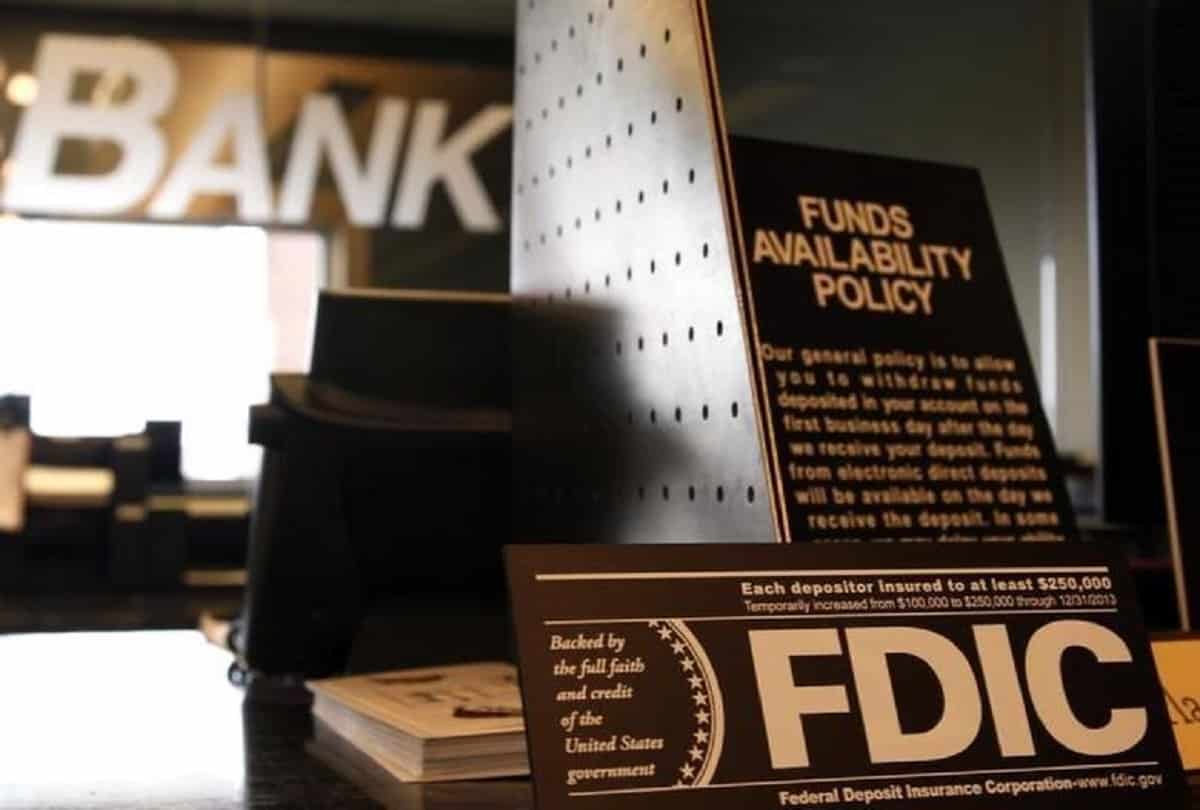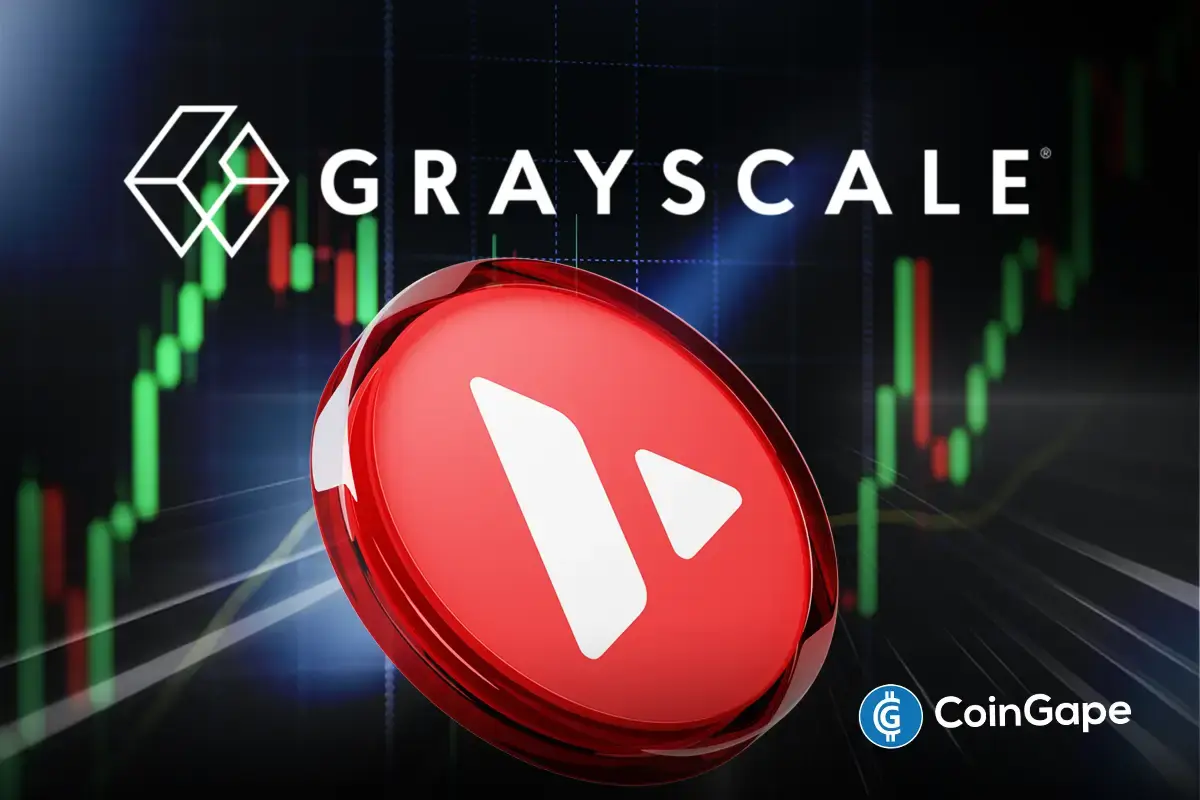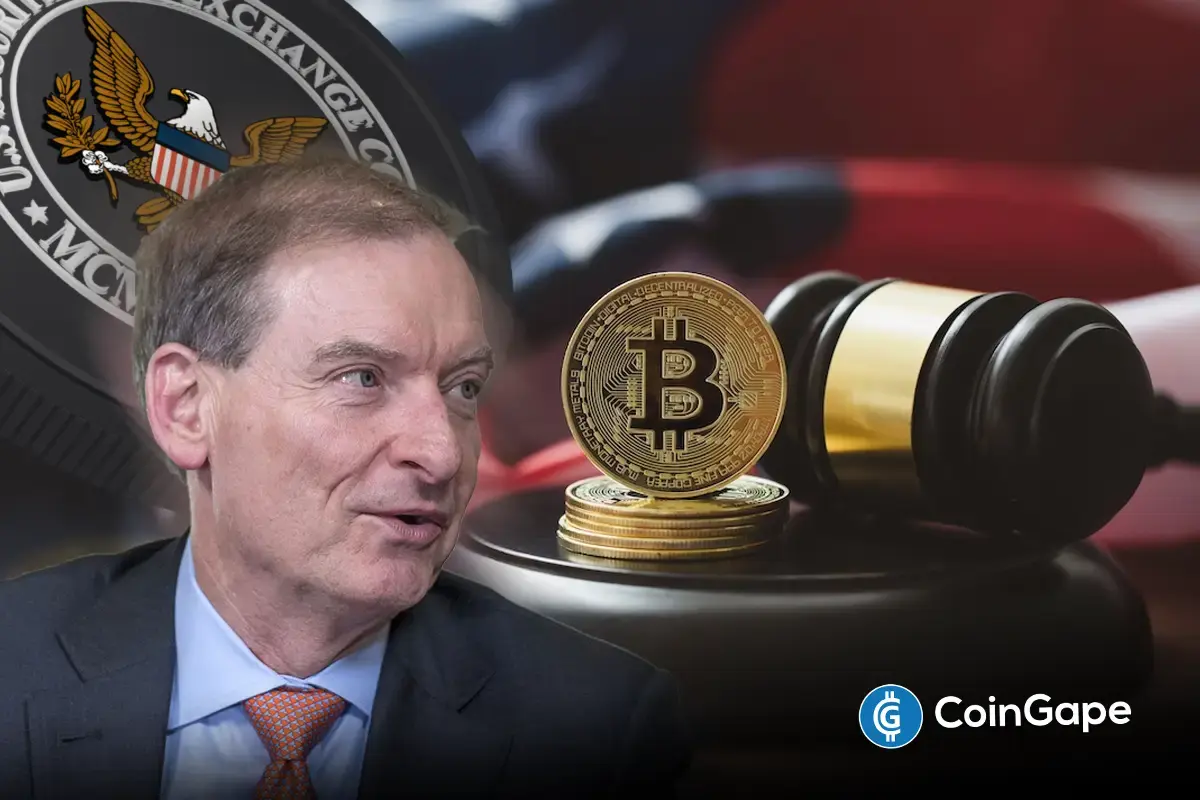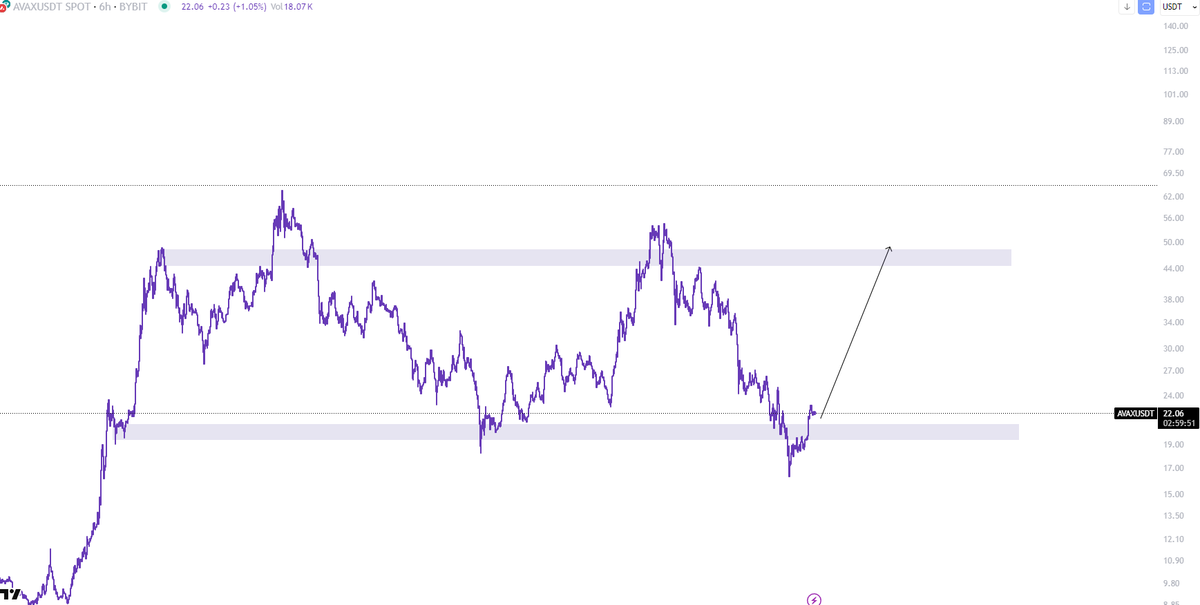Regulation
Is A Fed Rate Cut Ahead? Experts Warn It May Escalate Market Bloodbath

Speculations around Federal Reserve’s potential rate cuts have intensified amid global economic turmoil. Prominent financial figures warn that such a move could lead to severe repercussions, potentially causing further crypto market crash. Today, the U.S. Fed has reportedly arranged an emergency meeting to decide on rate cuts.
Expert Warnings Against US Fed Rate Cut
Scott Melker, also known as The Wolf Of All Streets, highlighted the potential downside of a Fed pivot. He stated, “The Fed pivot you’re all excited about is often bearish, especially when it’s a reaction to things breaking.” This suggests that Fed rate cuts, typically seen as a measure to stimulate the economy, might worsen the crypto crash.
In a detailed analysis shared earlier, Melker explained that the common belief that a Fed pivot is beneficial for markets is “patently false.” He pointed out that historically, “after the Fed pivot to rate cuts, the market almost always crashes/corrects.”
Furthermore, Melker’s analysis indicates that rate cuts often precede significant market dips. This could spell trouble for cryptocurrencies already facing intense downward pressure. Today, over $1.1 billion liquidations have been initiated in the crypto market.
Moreover, nearly $1 billion liquidations are attributed to longs. This could have accelerated the latest downturn owing to fear, uncertainty, and doubt (FUD). Recently, Goldman Sachs also raised the probability of a U.S. recession in the next year from 15% to 25%. Bitcoin critic Peter Schiff also weighed in on the situation.
He predicted that the Federal Reserve might cut rates mid-meeting to stabilize collapsing stock and labor markets. However, Schiff warned that such measures would fail to revive the economy or employment but could exacerbate inflation. Moreover, the economist hinted at a recession if a Fed rate cut is announced anytime soon.
Additionally, Peter Kinsella of UBP says an emergency Fed rate cut from the Fed is “unlikely.” He expects it would “send panic signals to the market,” according to a Bloomberg interview. Kinsella suggests that if the U.S. Federal Reserve just signals a September rate cut then that should tackle the immediate problem of the market downturn.
Also Read: Breaking: US Fed Calls Emergency Meeting As Japan Markets Collapse
U.S. Fed Emergency Meeting
The crypto market has already shown signs of distress. Over the past five days, Bitcoin price has plummeted by 18%. The S&P futures have dropped by 4%, reflecting broader market instability. In response to these developments, the U.S. Federal Reserve has called for an emergency meeting, heightening expectations of a potential rate cut.
The Japanese yen (JPY) has also seen significant depreciation, falling by 13%. Whilst, the Taiwanese and Korean markets are down nearly 10%. These declines in international markets add to the global financial uncertainty. This further complicating the Fed rate cut decision-making process. Analysts expect a 50 bps cut after today’s emergency meeting.
Given these conditions, a Fed rate cut could lead to further volatility in the crypto market. However, CNBC host Ran Neuner offered a differing opinion, describing this moment as critical. He noted, “This is the moment we have been waiting for.” In addition, he emphasized the urgency for the Fed to act swiftly to prevent a financial meltdown that could surpass the 2008 crisis.
Meanwhile, the VIX Index, often referred to as Wall Street’s “fear gauge,” has surged above 50 for the first time since April 2020. This significant rise reflects heightened market volatility and investor anxiety. Moreover, it is echoing levels seen during the onset of the Covid-19 pandemic.
Also Read: Crypto Crash: Liquidations Cross $1 Billion As Japan’s Nikkei Drops 13%
Disclaimer: The presented content may include the personal opinion of the author and is subject to market condition. Do your market research before investing in cryptocurrencies. The author or the publication does not hold any responsibility for your personal financial loss.
Regulation
FDIC Revises Crypto Guidelines Allowing Banks To Enter Digital Assets

The Federal Deposit Insurance Corporation (FDIC) has updated its guidelines, enabling banks to engage in cryptocurrency-related activities without seeking prior approval. This new policy shift signals a change in the FDIC’s approach to the growing role of digital assets in the banking sector.
New FDIC Guidelines on Crypto-Related Activities
The FDIC has issued a new Financial Institution Letter (FIL-7-2025), which provides updated guidance for banks looking to engage in cryptocurrency activities. The new guidance rescinds the previous policy set out in FIL-16-2022, which required banks to notify the FDIC before engaging in such activities.
Under the new rules, banks can now participate in permissible crypto-related activities without waiting for FDIC approval, as long as they manage the risks appropriately.
This change is seen as a shift in the FDIC’s stance, following the agency’s earlier stance that required prior approval for crypto engagements. FDIC Acting Chairman Travis Hill expressed that this new approach aims to establish a more consistent framework for banks to explore and adopt emerging technologies like crypto-assets and blockchain.
“With today’s action, the FDIC is turning the page on the flawed approach of the past three years,” said Hill in a statement.
This Is A Developing News, Please Check Back For More
Disclaimer: The presented content may include the personal opinion of the author and is subject to market condition. Do your market research before investing in cryptocurrencies. The author or the publication does not hold any responsibility for your personal financial loss.
Regulation
AVAX Price Eyes Rally To $44 As Grayscale Files For Avalanche ETF

According to a recent analysis, the AVAX price is eyeing a rebound to as high as $44. This comes just as asset manager Grayscale files to offer an Avalanche ETF, which will list and trade on the Nasdaq exchange.
Grayscale Files With US SEC To Offer Avalanche ETF
Grayscale has officially filed with the US SEC to offer an Avalanche. This came following Nasdaq’s 19b-4 filing with the Commission to list and trade this proposed ETF on the exchange. The SEC will have to determine whether or not to approve the fund.
Grayscale becomes the second asset manager to file to offer an AVAX ETF. VanECK was the first as the asset manager filed the S-1 for its ETF with the SEC two weeks ago. It is worth mentioning that Grayscale already has an Avalanche Trust, which it is simply looking to convert to an ETF.
Asset managers continue to file for several altcoin ETFs under the new SEC administration, with acting Chair Mark Uyeda looking to create a regulatory-friendly environment for the crypto industry. US SEC Chair nominee Paul Atkins has also affirmed that he plans to prioritize regulatory clarity for the industry.
Market expert Nate Geraci also highlighted the wave of altcoin ETFs that have stormed the SEC’s desk including filings for XRP, Solana, Dogecoin, Cardano, SUI, Hedera, Polkadot, Litecoin, Aptos, and Axelar.
AVAX Price Eyes Rebound To $44
The AVAX price is eyeing a rebound to $44 as predicted by crypto analyst Jarfan. Grayscale’s filing for an Avalanche ETF undoubtedly provides a bullish outlook for the altcoin and could spark this rally.
Jarfan stated that AVAX’s chart is one of the cleanest on the market at the moment. He remarked that the altcoin has taken out previous lows and looks to be putting a double bottom on the higher timeframe.
In line with this, he affirmed that overall, a very bullish structure is forming at the moment and that AVAX is showing a lot of relative strength in comparison to other altcoins. The analyst noted that there have been major moves from other coins recently, although they have been mainly meme coins, and that the fact that Avalanche is keeping up with them is truly impressive.
Jarfan also stated that the AVAX price is holding above a very strong support right now with barely any drawbacks. As such, he belives that the altcoin will rally to $30 in no time once Bitcoin breaks out from $88,000.
His accompanying chart also showed that the altcoin could rebound to $44, although it would face a major resistance at that level as it attempts to further rally to the upside. The crypto analyst predicts that Avalanche will break in the top 10 cryptocurrencies by market cap very soon.
Disclaimer: The presented content may include the personal opinion of the author and is subject to market condition. Do your market research before investing in cryptocurrencies. The author or the publication does not hold any responsibility for your personal financial loss.
Regulation
US SEC Chair Nominee Paul Atkins To Prioritize Regulatory Clarity For Crypto Industry

US SEC Chair nominee Paul Atkins has revealed his intention to prioritize providing regulatory clarity for the crypto industry. This came following Atkins’ nomination hearing before the US Senate Banking Committee.
Paul Atkins To Prioritize Regulatory Clarity For Crypto Industry
During his Senate Banking Committee nomination hearing, Paul Atkins stated that a top priority of his chairmanship will be to work with his fellow commissioners and Congress to provide a “firm regulatory foundation for digital assets through a rational, coherent, and principled approach.
This comes just as CoinGape reported that the US SEC plans to shift its focus from crypto enforcement actions to traditional cases. Under past Chair Gary Gensler, the Commission adopted the regulation by enforcement approach instead of providing clarity for the industry.
However, Atkins is looking to change that, with his mission already aligning with the moves the agency, under Acting Chair Mark Uyeda, has made so far to create a regulatory-friendly environment for the industry.
During the hearing, Committee Chairman Tim Scott alluded to the backlash that the SEC faced under Gensler. Paul Atkins admitted that all prior issues were disturbing and committed to working on boosting the agency’s image. He added that he wants to go back to the basics and ensure that the Commission works in line with its mission.
Atkins Crypto Holdings Revealed
Coingape recently reported that Paul Atkins holds almost $6 million in crypto investments, according to a disclosure released on Tuesday. Between $250,000 and $500,000 is equity in crypto custodian Anchorage Digital.
Meanwhile, the US SEC Chair nominee previously held a board position at the BlackRock-backed tokenization firm and had nearly $250,000 to $500,000 in call options. $1 million to $5 million of these investments came from stakes in Off the Chain Capital, where he is a limited partner.
It is unclear if Paul Atkins will offload these crypto investments if the US Senate confirms him as the next US SEC Chair. However, Senator Elizabeth Warren described his financial conflicts of interest as “breathtaking.”
Disclaimer: The presented content may include the personal opinion of the author and is subject to market condition. Do your market research before investing in cryptocurrencies. The author or the publication does not hold any responsibility for your personal financial loss.
-

 Market22 hours ago
Market22 hours agoCan Cardano (ADA) Reach Back to $1 in April?
-

 Market21 hours ago
Market21 hours agoShould You Buy Movement (MOVE) For April 2025?
-

 Altcoin21 hours ago
Altcoin21 hours agoDogecoin Price Prediction: Here’s What Needs To Happen For DOGE To Recover Above $0.3
-

 Market20 hours ago
Market20 hours agoBinance To List MUBARAK, BROCCOLI, BANANAS31, and Tutorial
-

 Altcoin17 hours ago
Altcoin17 hours agoDogecoin Cup And Handle Pattern Signals Recovery To $0.4, Here’s How
-

 Market16 hours ago
Market16 hours agoWhy BTC Price Stayed Unchanged
-

 Market15 hours ago
Market15 hours agoBitcoin Price Stalls at $88K—Can Bulls Overcome Key Resistance?
-

 Altcoin20 hours ago
Altcoin20 hours agoBinance Announces Vote To List Results, Set To List MUBARAK, BROCCOLI, TUT, BANANA























✓ Share: